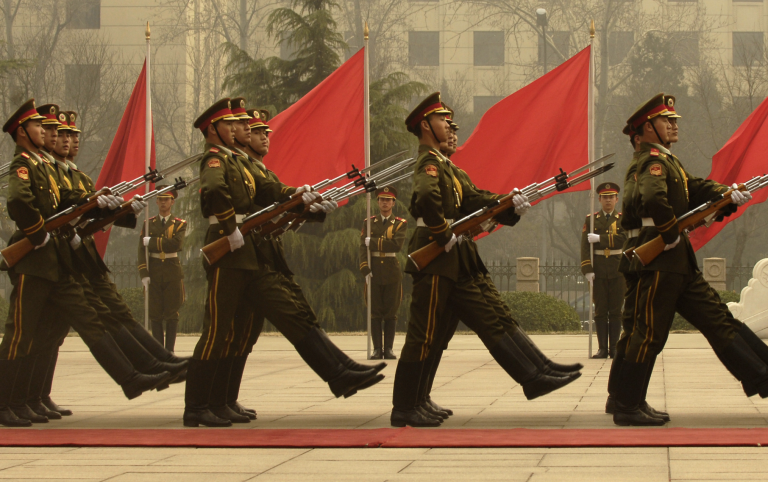
China’s defense-related revenue continues to grow at a fast clip as its military budget increases to $230 billion dollars.
The recent increase continues the trend noted for several years. According to Defense News, the Aviation Industry Corporation of China (AVIC) was the top defense-related state enterprise owned by China for the fourth year in a row for the year 2021. During the year 2020-2021, AVIC’s revenue grew from 67.9 billion to 80.4 billion with 18 percent of the growth related to defense-related expenses.
The announced 7.2 percent increase in 2023 for defense activities is reportedly earmarked for “boosting combat preparedness and enhancing military capabilities”, according to a draft of the proposed budget presented to the National People’s Congress earlier this month.
The increase in the military budget marks a shift from previous budgets, in which China allotted more financial consideration to economic growth and development over defense-related activities.
While attending China’s National People’s Congress at the Great Hall of the People in Beijing earlier in March, President Xi Jinping confirmed support for increasing China’s defense capabilities, according to Reuters.
“Our armed forces, with a focus on the goals for the centenary of the People’s Liberation Army (PLA) in 2027, should work to carry out military operations, boost combat preparedness and enhance military capabilities,” Li said in his state-of-the-union address to the legislature.
While no official breakdown of the announced spending was provided, it marks the eighth consecutive year of growth in spending on defense for China. Actual monetary expenses to the Chinese military remain unclear, with some Department of Defense resources reporting China’s defense expenses may be one to two percent higher than official budget statements.
Li Mingjiang, associate professor at S. Rajaratnam School, Singapore, provided his opinion that the increase may be related to concerns in Beijing over tensions with Taiwan and the United States, particularly over the disputed South China Sea waters.
“Chinese leaders are clearly intensifying efforts to prepare the country militarily to meet all potential security challenges, including unexpected situation,” Mingjiang said.
Takashi Kawakami, a professor at Takushoku University, Tokyo, opined that at least some of the budgetary increase would be allotted to improving technology-related defense capabilities.
“As China strengthens the new area of cognitive warfare over Taiwan, I think it will also use the budget to build up its cyber and Space capabilities as well as its submarine forces to target undersea cables,” Kawakami said.
In directly related news, Australia announced that it intended to increase efforts to purchase longer-range missiles in counter to a perceived growing threat from China, according to the BBC.
The Australian Defense Strategic Review calls for an expense of $19 billion in order to meet the recommendations to modernize Australian military capabilities, in direct response to China’s military growth.
“China’s military build-up is now the largest and most ambitious of any country since the end of the Second World War,” the report reads, “This build-up is occurring without transparency or reassurance to the Indo-Pacific region of China’s intent.”
0 comments :
Post a Comment